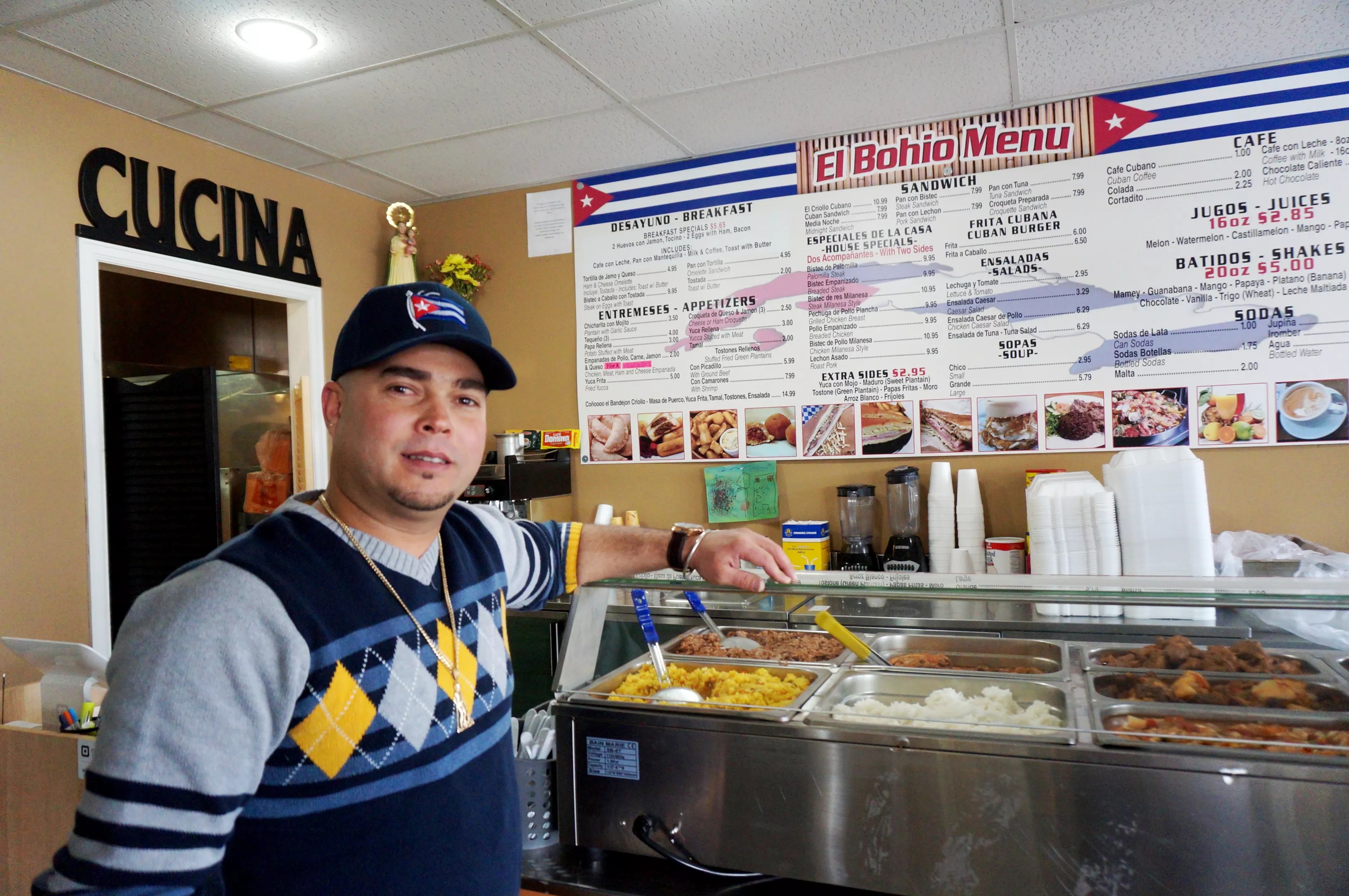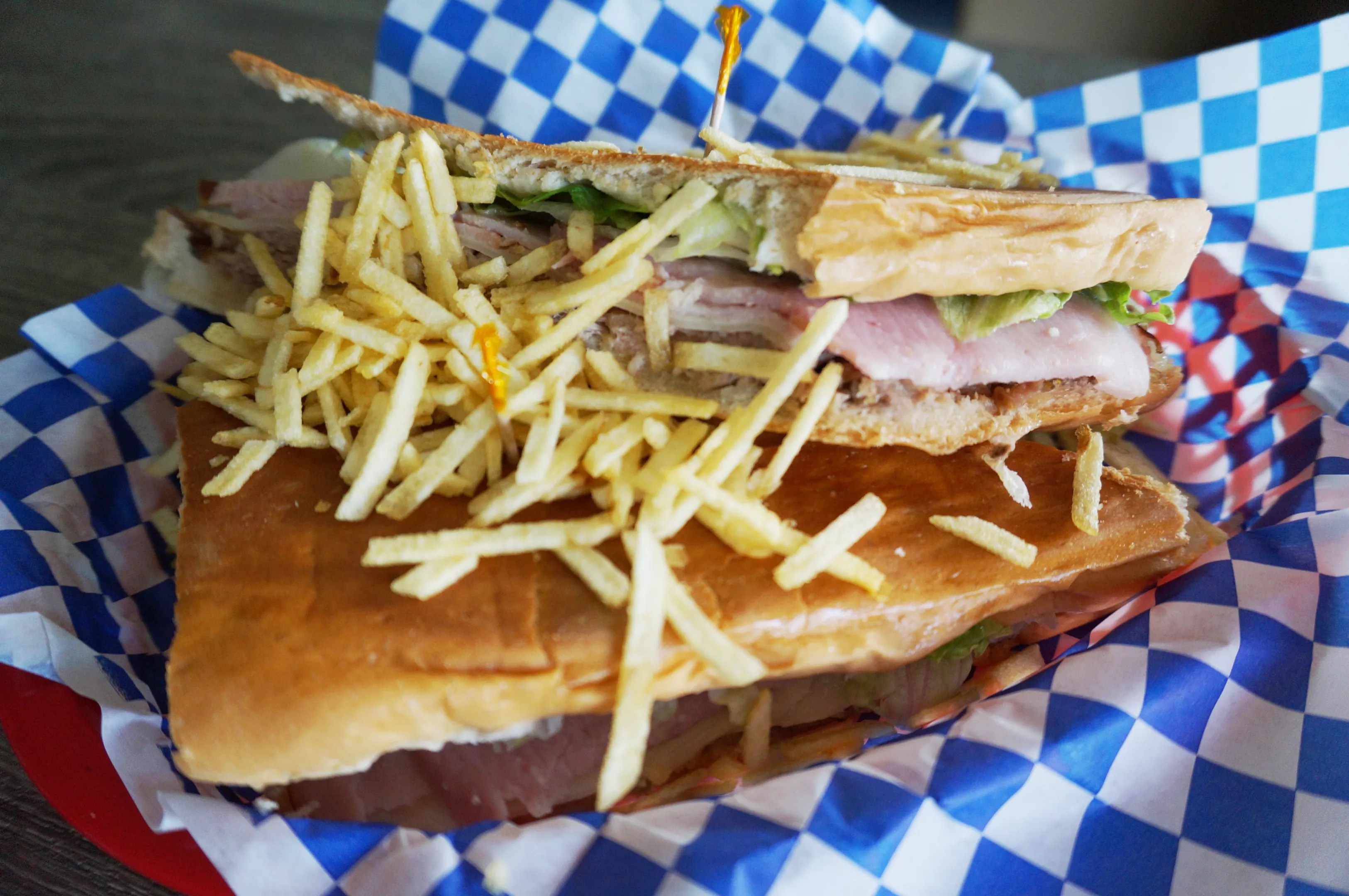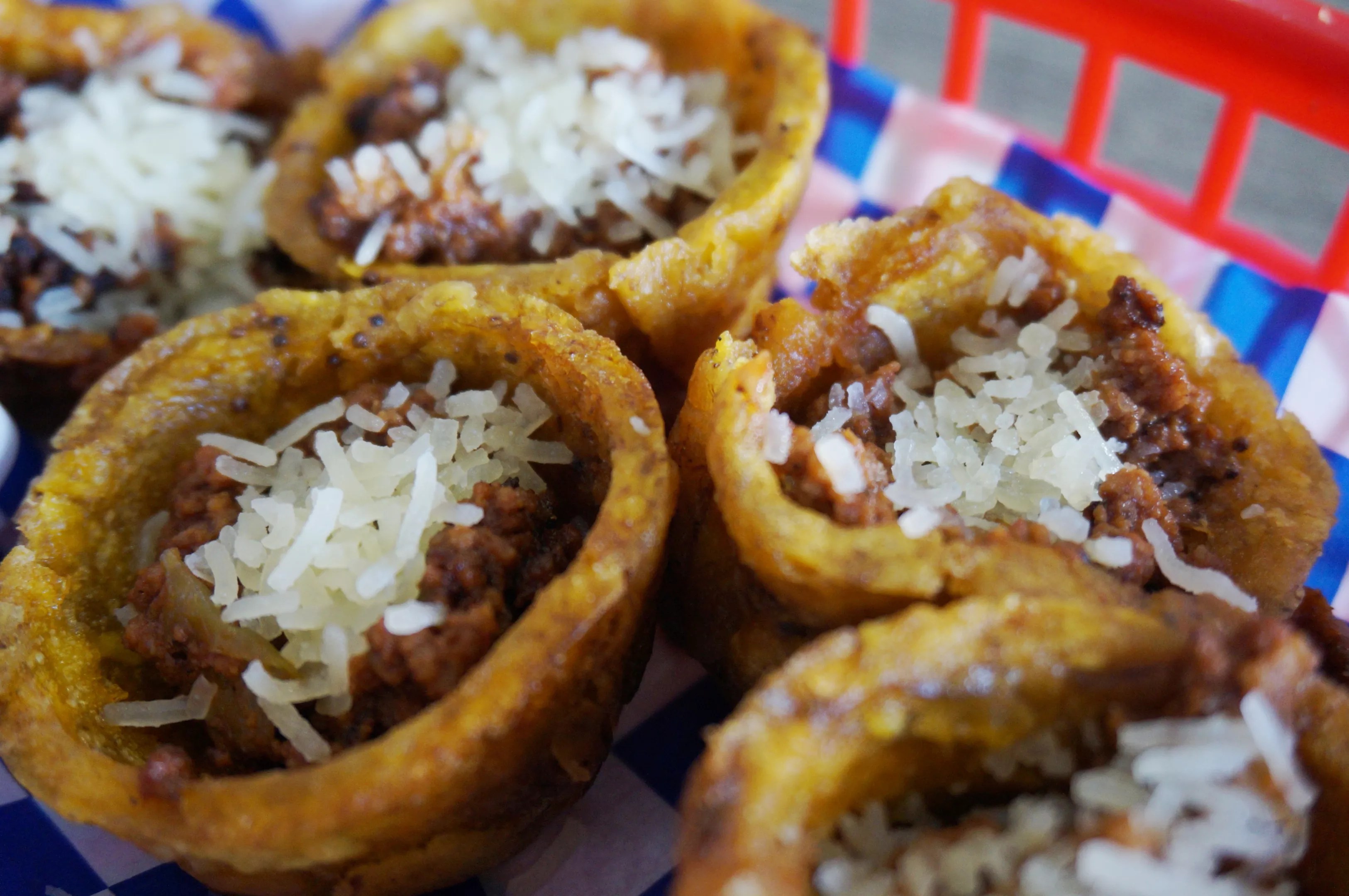
Mark Antonation

Audio By Carbonatix
A food truck that popped up on Federal Boulevard near Mile High Stadium last spring quickly distracted me from the many Mexican taco vendors in the area. El Bohio Criollo stood out because its menu was Cuban; instead of carnitas and smothered burritos, the truck peddled yuca fries, croquetas, Cubano sandwiches stacked with roast pork and ham, and an unusual sandwich called a frito Cubano: a kind of burger made with a dense beef-and-chorizo patty. But the truck soon vanished, and as I continued to cruise Federal longing for another bite of frito Cubano and a side of yuca fries, I simply assumed that El Bohio Criollo had fallen victim to an apathetic neighborhood already saturated with mobile food vendors.
Then a few weeks ago, a friend who works on the west side of town informed me that her co-workers had been making repeat visits to a restaurant in Golden called El Bohio. Since they’d told her the place was Brazilian, it never crossed my mind that there might be a connection to that little Cuban food truck. Still, my curiosity was piqued; after all, Brazilian cooking is as rare in Denver as Cuban – even more so if you exclude a couple of corporate steakhouse chains. But when I arrived at the spot, located in the quaint enclave of Applewood, I immediately recognized the El Bohio Criollo logo. After a quick flash of disappointment at missing out on some Brazilian feijoada and pao de quejo, I started hungering for fried plantains and good Cuban bread. My assumption that El Bohio Criollo had disappeared because business was bad was wrong: The truck had actually made the owner enough money to launch a brick-and-mortar restaurant.
El Bohio’s owner is Cuba native Greico Herrada, who runs the place with his wife and mother-in-law. Herrada grew up in a town of about 300 people in rural Cuba and fled the country in 1994 (along with some 35,000 other refugees that year) when he was seventeen, paddling in a boat with two friends across nearly 100 miles of open water. Herrada met the woman who became his wife in Miami; the couple lived there with their three sons until just a few years ago. After Herrada visited a friend in Denver, he was persuaded that Colorado could be his new home. Talking his wife into a move took a little more time, however; she was certain the weather would be too cold for her. But once they settled in Denver, they knew they had made the right decision.
“I’m in love with the city,” Herrada says, removing his Broncos hat to pose for a photo. “It’s one of the few cities where you can see your future.”
As it turns out, his future lay in presenting the food of his past to the people of Denver. Herrada’s restaurant is named after the palm-thatched huts common in the Cuban countryside and along its beaches, where people cook beans, rice and meaty stews over charcoal. “Criollo – that means original,” Herrada explains, adding that his food is more like what he remembers from his childhood than modern Miami-Cuban cuisine.
When Herrada started looking for restaurant space, he was discouraged by high rents and bad locations. But eventually he found the right corner, in an aging but well-kept shopping center not far from I-70, Colfax Avenue, Simms Street and the Colorado Mills shopping center – all of which helped keep traffic flowing and customers coming through the door of the tidy little eatery, which is decorated with vintage Cuban record sleeves, straw hats and artificial palm trees. And the intersection is surprisingly diverse, with a Chinese restaurant next door, a Mexican place across the street and a hookah lounge on the opposite corner. “The people in the neighborhood have shown us a lot of love,” he notes. “We love it here; we’re not going anywhere.” Among El Bohio’s first customers were two Cuban-American brothers born in Denver who live just across the street from the restaurant.

El Bohio’s Cubano is stuffed with slow-roasted pork, ham and lots of other good stuff.
Mark Antonation
Most of us are familiar with the Cubano sandwich: ham, roast pork, pickles, cheese and yellow mustard on a special bread that compresses nicely into a dense, chewy shell when grilled. El Bohio sells those along with other variations, such as a larger house special that includes lettuce and tomato, and a medianoche, which substitutes a fluffier bread tinted yellow with egg yolk. “Cuban bread is hard to make here because of the altitude,” Herrada notes. But he found a baker working in a Mexican panaderia who was willing to experiment until Herrada decided that the product was to his liking.
Appetizers encompass a range of little fried things: smashed plantain formed into cups and stuffed with ground beef or shrimp, croquettes of potato or yuca, flaky empanadas filled with ham and cheese, simple yuca or plantain (either green or sweet) fries. A steam table presents daily specials ranging from ropa vieja (slow-cooked shredded beef) to paella to pork chops in sauce, often with a choice of white rice, yellow rice or moro (a mixture of black beans and rice). Desserts and pastries fill a small display case, and tropical shakes called batidas offer a little more for those with a sweet tooth.

These tostones rellenos are plantain cups filled with seasoned ground beef and grated cheese.
Mark Antonation
El Bohio Criollo is open from 9 a.m. to 8 p.m. Monday through Saturday, so you can also grab breakfast and a strong Cuban coffee. Just remember that a tortilla in Cuba is a type of omelet, not a standard Mexican corn or flour tortilla, and “tostada” is simply buttered toast; otherwise, you might be very surprised by your morning meal.